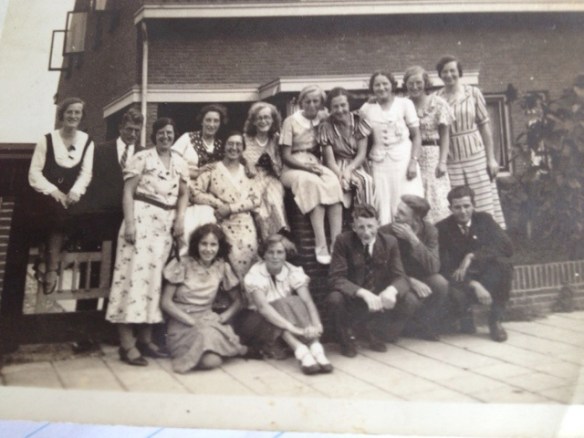“Listen. This is not complicated. Just turn on some music. Any music. And listen.”
Mmmm . . . this is different.
“Close your eyes while you’re listening to this music. This is a contest for yourself. You can let your mind think whatever it wants. You don’t have to be at school anymore. You can go wherever you want. Maybe you think about colors. Maybe you’re thinking about lunch. That’s okay. Write down three things you’re feeling.”
The teacher with the dreadlocks gives a small encouraging smile.
Nels Davig Dovre is certainly not old and wizened. In fact, his unlined, fine-featured face makes you think of youthful rules like “be sure to bring the car home before ten,” and “don’t forget to clean your room.” That would be a mistake. Look again. He may actually be the guy who influences your kid’s life.
 Piano, cello, guitar, electric bass, euphonium, voice, even cow bells. Nels Davig Dovre has studied them all. And that’s a guitar he built himself. Fortunately for us, he was afraid a music degree in college may not be enough by itself.
Piano, cello, guitar, electric bass, euphonium, voice, even cow bells. Nels Davig Dovre has studied them all. And that’s a guitar he built himself. Fortunately for us, he was afraid a music degree in college may not be enough by itself.
“I decided I needed to get an education degree so that I could get a job. But I didn’t imagine myself being a teacher until my second day student teaching. After the second day, I felt wide awake, that really turned my brain on.”
And a teacher he became. He’s been the music teacher for three years at Madison Elementary School, preschool through fifth grade, a feeder school to North High School. He hums with the excitement of it.
“Songs are written by people who had feelings. It is a lot to do with sharing. It is all about connection. I want the students to feel this. I want them to use music to make their life richer. In whatever way that suits them. I’m going to teach them as many tools as they’re capable of learning in these six years I am their teacher.”
Nels Davig Dovre also has a band. GoodcaT. They play gigs around the Midwest — showcasing his own songs and music.
“The kids know I’m in a band. It’s kind of great. They see me play with really talented musicians and I have less behavior problems — they think I know what I’m doing [he laughs]. But really in every class I teach there are usually about three or four students who are better than I am. They learn it quicker. They blow me out of the water.”
And this year, Nels Davig Dovre is even more enthused about teaching.
“Our school is part of Turnaround Arts. One of the segments is about integrating the arts into the traditional classroom. I teach strategies to teachers using music. I co-teach this entire year. It is amazing.”
“Excited”? “Enthused”? “Thrilled with his job”? “Happy to see the kids”? They “blow him out of the water”?
What is his problem?
“Did you know if I teach thirty students a song, five of them will remember that song fifty years from now? That’s pretty cool.”
You and I hustle to work, drive to school, do the laundry, prepare the meals, sell the shoes, win the case — and then we gently close their bedroom doors at the end of the day. Exhausted. We fret and worry about love and money and the last ten pounds. But who is taking the hand of our child from first light until deep into the afternoon? Who speaks to our child of feelings and music and dreams? Shouldn’t these teachers be sitting at the VIP table? Shouldn’t their names be spoken with respect and gratitude and honor? Shouldn’t we all rise when they walk in the room?
And, by the way, shouldn’t we pay for them to plug in their coffeepots?
GoodcaT has an album out. So, I gave it to my disc jockey friend DJ Andy, who has a program with APCS Radio on Tuesday evenings. DJ Andy gave it a spin.
“I would qualify the cd as a mix of folk and alternative pop music. When I hear the violin it reminds me of Irish (Celtic) Folk Music. But sometimes I hear a pop sound especially in number two of the cd. Although it isn’t my kind of music, I have to say that the compositions are excellent. I was never bored listening to it and my wife loved it. So they did a fine job. There is a circuit for it in Holland. So when they have the crazy idea to come to Holland, there are some clubs who would like their music.”
Oh, by the way, APCS Radio? Amsterdam Power Classic Station . And one other thing, DJ Andy, otherwise known as Andre Klunder, has a day job — teacher at a high school in The Hague.
Just listen. This is not complicated.
Joe

































